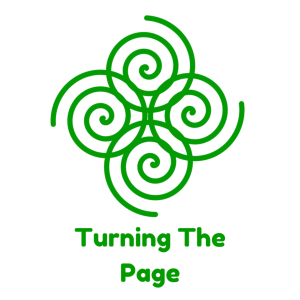
Sunday Sep 03, 2023
The Beauty of an Empowering Question
I want to know, and because I want to know I will ask empowering questions. Ones that open up the treasure chest of the heart and mind.
It felt more like an interrogation than an invitation.
Questions poured out. Demanding, angry, harsh questions that sent me into a state of frigid shock.
I had no answers. This was the neighbourhood bully. This was the cat having perverse pleasure with a cornered mouse. This would not end well.
You would think a simple conversation wouldn’t be traumatic, but questions amplified with verbal and non-verbal tones can decimate a soul.
But questions framed in gentleness, love, and respect can also be one of the most healing gifts we can offer.
I call these gifts ’empowering questions.’
A brief history of empowerment
I came across the term ‘Empowerment’ back in the 1990s when I started working in the field of Mental Health care.
Large institutions that housed people with Mental Illnesses were closing down.
People who once lived in isolated separation from communities were now living in houses next to your own.
It had a big, long fancy word – deinstitutionalization.
Deinstitutionalization – in sociology, movement that advocates the transfer of mentally disabled people from public or private institutions, such as psychiatric hospitals, back to their families or into community-based homes. Britannica
Coming from an environment where much of ones personal powers had been taken away, this was a time where people had freedom to choose.
A new buzz word appeared in the conversations of everyone in Mental Health care.
Empowerment.
Empowerment meant to equip, encourage, and foster personal choice.
I remember supporting a young man in his early twenties. He had been living in an institution for probably five years and his aging mother had managed his money all his life, giving him some pocket money each week.
I asked him if he would like to manage his own money and he said he would. So he and I began the slow empowering process of opening a bank account. A completely foreign idea to him. We also talked about budgeting.
We talked about this with his mother, and she was furious. She believed he was totally incapable of managing money. She withdrew him out of our support. I can’t tell you the rest of the story because I simply don’t know.
Empowerment for me became the undergirding word for everything I do. Still does.
Where are you walking?
French writer Albert Camus puts it well.
Don’t walk in front of me… I may not follow
Don’t walk behind me… I may not lead
Walk beside me… just be my friend
Albert Camus
I would suggest to Albert that to empower someone is to even be a fraction behind the other so that they feel they are making the advances.
Being in front means they are simply followers, walking in your wake.
Being behind them, they may feel isolated, alone, vulnerable.
But walking beside and slightly behind is an invitation to trust and to step forward.
Feet slightly behind.
I think this empowering pose is captured in the post crucifixion story of Jesus’ walk to Emmaus
Now that same day, two of them were going to a village called Emmaus, about seven miles from Jerusalem.
They were talking with each other about everything that had happened.
As they talked and discussed these things with each other, Jesus himself came up and walked along with them; but they were kept from recognizing him. Luke 24:13-16
Jesus joined them on the journey. He walked along with them.
There is an invitation for us to be empowered by the risen Christ.
Jesus asks empowering questions
It has been reckoned that in the stories we have recorded of Jesus’ life, we find him asking over 300 questions. We also have his beautiful parables that contain within them questions created to empower us into a multitude of new thinking paths.
One of the Jesus stories that shouts ’empowerment’ to me is that of Bartimaues.
They came to Jericho. As he and his disciples and a large crowd were leaving Jericho, Bartimaeus son of Timaeus, a blind beggar, was sitting by the roadside. When he heard that it was Jesus of Nazareth, he began to shout out and say, ‘Jesus, Son of David, have mercy on me!’
Many sternly ordered him to be quiet, but he cried out even more loudly, ‘Son of David, have mercy on me!’
Jesus stood still and said, ‘Call him here.’ And they called the blind man, saying to him, ‘Take heart; get up, he is calling you.’
So throwing off his cloak, he sprang up and came to Jesus.
Then Jesus said to him, ‘What do you want me to do for you?’ The blind man said to him, ‘My teacher, let me see again.’
Jesus said to him, ‘Go; your faith has made you well.’ Immediately he regained his sight and followed him on the way. Mark 10:46-52
It should have been obvious that he would want his sight to be restored, but no, Jesus still asked an empowering question. He put the power back into the hands of Bartimaeus.
How to ask empowering questions
Look above, look below, look behind and look in front.
I think of a large iceberg floating in the ocean.
- Look above the waterline refers to what is being presented right here and now. It’s obvious, you know it they know it, it’s easily seen. Bartimaues is blind and a beggar.
- The look below is the below the surface level observation. What’s going on under what is being presented. What is supporting the obvious ‘above the surface’ level? Bartimaues is alone, poor, crying out for mercy. Deep pain.
- The look behind is a question of where has this iceberg been? What has shaped this person? What’s the story? What was Bartimaues journey to this place of need?
- The look in front is where is this iceberg going. Where could it go? What is a compelling vision for this person? Where is Bartimaues going within the current he lives in?
Jesus asks ‘What do you want me to do for you?’
Empowering questions open up the exploration.
Empowering questions give the other power to be honest, vulnerable and even wrong in the face of love and possible rejection.
I believe that we all want to be known, explored, discovered, and touched. There is something deep within needs presence more than the problem solving.
I want first things first.
I wonder if Bartimaues wanted his sight to be restored so that his life would be better or that he would be able to see Jesus.
Now that’s a big question! He got both.
Augustine and C. S. Lewis
- “Suppose God proposed to you a deal and said, ‘I will give you anything you want. You can possess the whole world. Nothing will be impossible for you … Nothing will be a sin, nothing forbidden. You will never die, never have pain, never have anything you do not want and always have anything you do want–except for just one thing: you will never see my face.’Augustine closed with a question: “Did a chill rise in your hearts, when you heard the words, “you will never see my face?” That chill is the most precious thing in you; that is the pure love of God.”
- Put first things first and we get second things thrown in: put second things first and we lose both first and second things. C. S. Lewis
Deep empowering questions discern, with a gentle curiosity, what is first and what is second.
What is it you most want? Restoration of sight? A better life now? To be in control when all seems to be mystery and fog?
I like to ask empowering questions because they reveal the Emmaus walk that I am part of with others.
So, what’s it like being you?
I’m curious? 🙂 barry@turningthepage.co.nz
Quotes to consider
- The quality of your life is a direct reflection of the quality of the questions you are asking yourself.
- Christianity is one beggar telling another beggar where he found bread. D.T. Niles
- When we become quiet enough to let go of people, we learn compassion for them. We can be with people in their hurt and need. We can speak a word out of our inner silence that will set them free. Richard Foster Simplicity
- When we honestly ask ourselves which person in our lives mean the most to us, we often find that it is those who, instead of giving advice, solutions, or cures, have chosen rather to share our pain and touch our wounds with a warm and tender hand. Henri J.M. Nouwen
- The most important thing in communication is hearing what isn’t said. Peter Drucker
- Learn to respond to others with honest, open questions instead of counsel or corrections. With such questions, we help “hear each other into deeper speech.” Parker J. Palmer.
- When you speak to me about your deepest questions, you do not want to be fixed or saved: you want to be seen and heard, to have your truth acknowledged and honored. Parker J. Palmer.
- Good work is relational, and its outcomes depend on what we are able to evoke from each other. Parker J. Palmer
- It is usually most helpful to ask questions that are more about the person than about the problem. Parker J. Palmer
- There are questions which illuminate, and there are those that destroy. We should ask the first kind. Isador Rabi.
Questions to answer
- How does it feel when someone asks you deep, empowering questions?
- What would it take for you to learn to ask empowering questions?
- What is it you most need right here and right now?
Further reading
Barry Pearman
Photo by Lauren Richmond on Unsplash
Read this further here
FOLLOW ME!
Email me: barry@turningthepage.co.nz
Website: https://turningthepage.co.nz/
Facebook: https://www.facebook.com/turningthepage1atatime
Twitter: https://twitter.com/barrypearman
Instagram: https://www.instagram.com/barry_pearman/
Podcast https://turningthepage.co.nz/podcast-listen-mental-health/
Support Turning the Page with a Donation https://turningthepage.co.nz/give/

No comments yet. Be the first to say something!